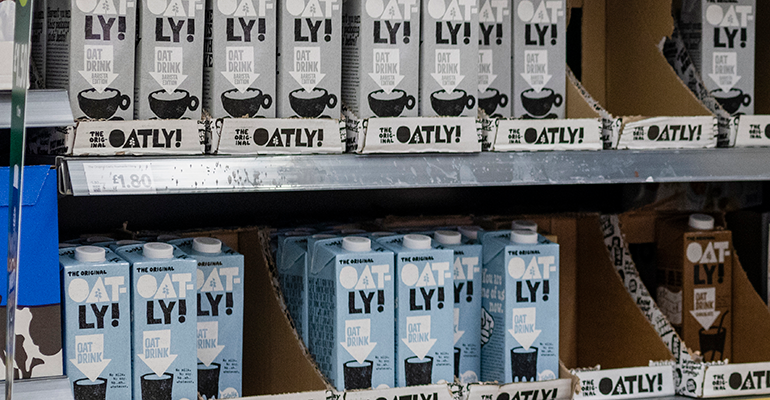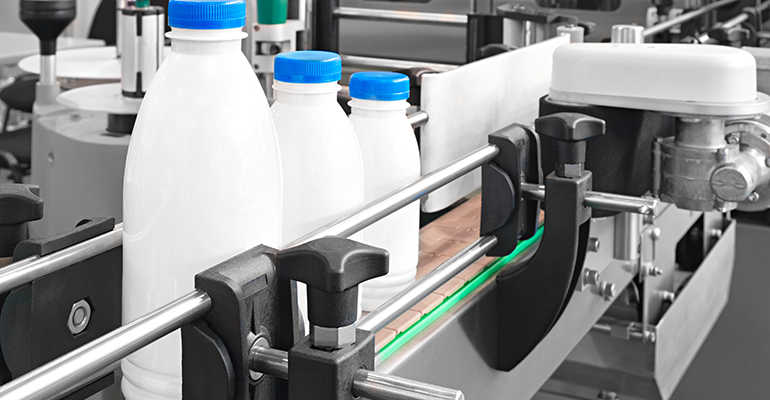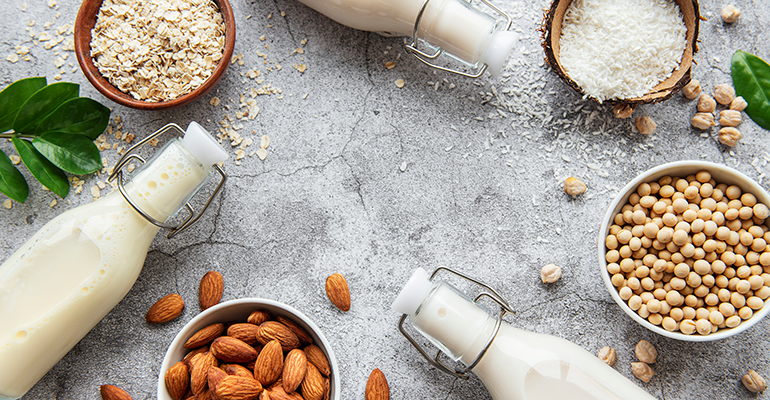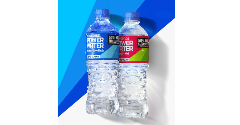News
UK High Court allows Oatly to use 'milk' on packaging
17 Jan 2024Oatly has scored a landmark victory in the use of the word milk after the UK High Court ruled against the country’s dairy industry and permitted the term to be used on packaging.
The ruling was the culmination of a four-year battle, in which judges ruled in favour of the vegan food specialists and its intention to use the word as part of the slogan 'Post Milk Generation' to sell its milk alternative.

Published court documents reveal the arguments the trade association, Dairy UK, put forward in the case, stating that milk meant exclusively the normal mammary secretion obtained from one or more milkings.
The trade association went on to reference pre-Brexit European Court regulations dating from 2013 that restricted the use of the word milk on packaging and the marketing of food and drink.
Oatly’s 'Post Milk Generation' slogan does not suggest products are dairy-based
In his ruling, Justice Richard Smith said that there was an unlikely risk of consumer deception, pointing out that Oatly’s slogan does not suggest its products are dairy-based.
Smith added: “The mark was not being used to define, designate, describe or name any food, foodstuff or food product, as opposed to describing its source.”
Oatly was initially permitted to register the slogan as a trademark for use on the firm’s food and drink products. These included its oat‐based drinks as milk substitutes; natural energy drinks; breakfast drinks; fruit drink beverages; and smoothie beverages.
The firm ran into opposition later, when Dairy UK, which count representatives from Arla and Lakeland Foods among its board members, objected to the slogan’s registration.
Significance of EU regulations
Key to Dairy UK’s arguments since then has been European regulations which detail marketing practices permitted for specific dairy-based products.
 © iStock/Matveev_Aleksandr
© iStock/Matveev_Aleksandr
Those rulings outlined in Article 78(2) of Regulation (EU) No 1308/2013 of the European Parliament specify how the word milk can be used on food packaging.
Oatly’s legal team put a case forward for the 'Post Milk Generation' slogan to be exempt from the regulations, stating that it was not a description of the product it was offering, but of the consumer.
In Smith’s explanatory remarks, the judge said the trademark did not claim to describe the product and was unlikely to lead to consumer misunderstanding.
“Terms such as definition, designation, name and sales description in the EU legislation summarised above are all directed to such generic descriptions such that the nature of the relevant food, foodstuff or food product can be discerned. However, that is far removed from the situation in this case in which the mark does not describe any product,” he said.
“In this case, the mark was registered for a variety of goods in different classes and, although it may well have been used in their marketing, it does not purport to market them as any particular product, let alone as milk. For the above reasons, I would allow the appeal.”
Plant-based sector faces challenges as to how its products can be described
The ruling in favour of Oatly places the spotlight on similar cases worldwide in which the plant-based sector faces an assortment of regulatory issues.
 © iStock/Almaje
© iStock/Almaje
Chilean food-tech company NotCo recently launched an appeal against a ruling that did not permit the firm to use its ‘NotMilk’ trademark in Chile on the grounds that consumers would be able to distinguish the product as a plant-based beverage despite packaging featuring the word milk.
Likewise, the Spanish seafood sector has combined its resources to push for a ban on 'fraudulent' plant-based products, which "attempt to assimilate to fish products to encourage their consumption, when they are neither fish nor do they provide the nutrients, minerals and benefits of fishery products".
Meanwhile, France and Australia have revealed they are to explore the introduction of stricter labelling regulation, which would limit the use of meat-related terms for plant-based products.
Related news

Oat Barista: Innovation for game-changing beverages
20 Nov 2025
Oat Barista is a clean label, sustainable, and innovative drink base specifically designed to create the perfect foam in one single ingredient.
Read more
How younger consumers are redefining ingredient choices and rejecting brand loyalty
18 Nov 2025
Gen Z and millennial consumers’ preferences for transparency, functionality, and purpose are “redefining the very nature of consumption itself”, says SPINS.
Read more
Hybrid formats and flexible positioning to disrupt category norms in 2026
17 Nov 2025
Trend forecasters expect food and drink to move more fluidly across occasions, functions, and formats as consumers seek versatility, novelty, and convenience.
Read more
Danone highlights digestive health as potential ‘tipping point’ for food industry
13 Nov 2025
Danone is betting on a food industry “tipping point” that will bloat the market for healthy products, particularly those related to gut health.
Read more
New UPF standard hoped to offer consumers ‘coherence and clarity’
10 Nov 2025
Ingredients companies are being urged to enter “a new era of partnership and innovation” following the launch of the industry’s first non-UPF verification scheme.
Read more
Faravelli at Fi Europe: Showcasing FARA® functional solutions for food and nutra
28 Oct 2025
At Fi Europe 2025 in Paris (stand 72M39), Faravelli showcases FARA® Customized Functional Solutions and a wide ingredient portfolio for food and nutra – delivering quality, innovation, and expertise.
Read more
Agrigum Redefined FIBER
27 Oct 2025
Agrigum has transformed gum acacia into a natural, science-backed fibre that supports gut health, sustainability, and innovation across global food and nutrition applications.
Read more
Expanding boundaries in food & beverage innovation
23 Oct 2025
IMCD and FrieslandCampina Professional expand partnership to deliver Kievit® across EMEA, enabling brands to enhance quality and accelerate time-to-market for tomorrow’s food & beverage creations.
Read more
Amazon Grocery launch aims to balance quality with affordability
22 Oct 2025
Global e-commerce giant Amazon has introduced a new private-label food brand, combining existing Amazon Fresh and Happy Belly products with new everyday items.
Read more
Powerade enters hydration space with launch of Power Water
21 Oct 2025
Coca-Cola’s Powerade brand has launched a zero-sugar, electrolyte-enhanced functional water, marking the brand's entry into the hydration space.
Read more